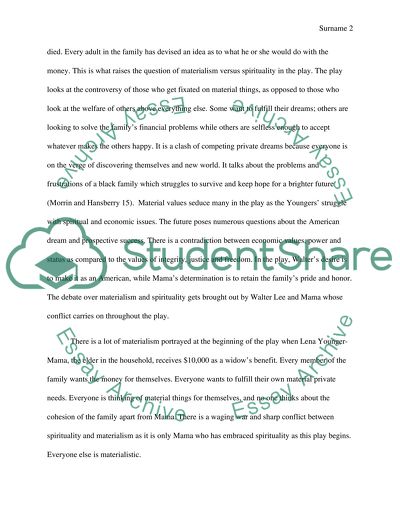Cite this document
(“Materialism VS Spirituality in A Raisin in the Sun by Lorraine Research Paper”, n.d.)
Retrieved de https://studentshare.org/literature/1450638-materialism-vs-spirituality-in-a-raisin-in-the-sun
Retrieved de https://studentshare.org/literature/1450638-materialism-vs-spirituality-in-a-raisin-in-the-sun
(Materialism VS Spirituality in A Raisin in the Sun by Lorraine Research Paper)
https://studentshare.org/literature/1450638-materialism-vs-spirituality-in-a-raisin-in-the-sun.
https://studentshare.org/literature/1450638-materialism-vs-spirituality-in-a-raisin-in-the-sun.
“Materialism VS Spirituality in A Raisin in the Sun by Lorraine Research Paper”, n.d. https://studentshare.org/literature/1450638-materialism-vs-spirituality-in-a-raisin-in-the-sun.


